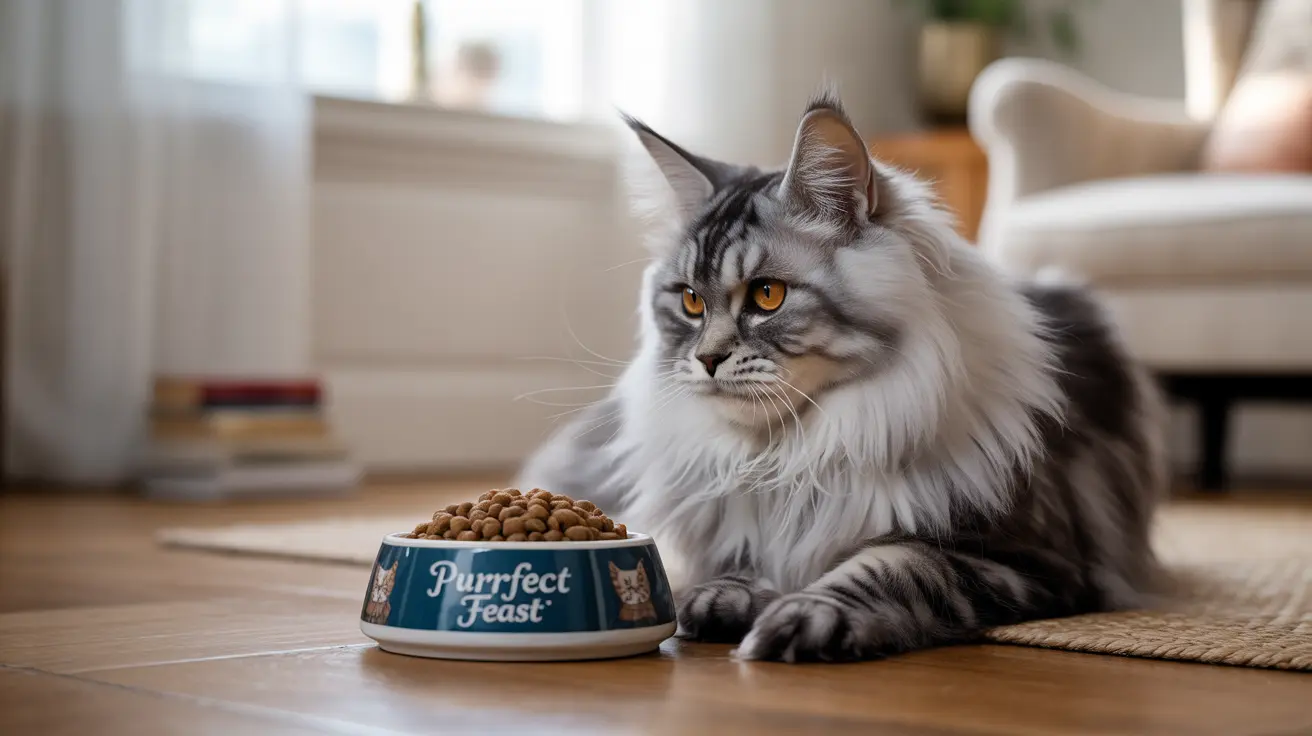When your cat receives a cancer diagnosis, proper nutrition becomes a crucial part of their treatment and recovery journey. Understanding how to adapt your cat's diet during cancer treatment can significantly impact their quality of life, strength, and response to therapy.
In this comprehensive guide, we'll explore evidence-based nutritional strategies for cats with cancer, helping you make informed decisions about your feline companion's diet during this challenging time.
Understanding Nutritional Needs During Cancer Treatment
Cancer significantly alters a cat's nutritional requirements. The disease and its treatments can affect appetite, metabolism, and how the body processes nutrients. Most cats with cancer need more calories and protein than healthy cats to maintain their body weight and muscle mass.
The key is finding the right balance of nutrients while ensuring the food remains appetizing enough for your cat to eat regularly.
Essential Nutrients for Cats Fighting Cancer
Protein Requirements
High-quality protein is crucial for cats battling cancer. Experts recommend diets containing 40-50% protein on a dry matter basis, focusing on easily digestible sources like chicken, turkey, or fish. This helps maintain muscle mass and supports the immune system during treatment.
Beneficial Fats
Fat provides concentrated energy and helps make food more palatable. Aim for diets with 25-40% fat content, with particular attention to omega-3 fatty acids from fish oil, which may help reduce inflammation and support overall health during cancer treatment.
Carbohydrate Considerations
While there's ongoing debate about carbohydrate restriction, most veterinary nutritionists recommend limiting carbs to no more than 25% of the diet. This approach helps ensure your cat gets adequate protein and fat while potentially limiting glucose available to cancer cells.
Practical Feeding Strategies
Successfully feeding a cat with cancer often requires creativity and patience. Consider these practical tips:
- Warm food slightly to enhance aroma and appeal
- Offer small, frequent meals throughout the day
- Hand-feed if necessary to encourage eating
- Provide various textures and flavors to maintain interest
- Use shallow, wide bowls to prevent whisker fatigue
Special Dietary Considerations
Every cat's situation is unique, and their dietary needs may change throughout treatment. Work closely with your veterinary team to adjust the diet based on:
- Type and stage of cancer
- Response to treatment
- Presence of other health conditions
- Body condition and weight changes
- Appetite and food preferences
Frequently Asked Questions
What should I feed my cat if it has cancer?
Feed your cat a high-quality, protein-rich diet that's specifically formulated for cats with cancer or recommended by your veterinarian. Commercial veterinary diets designed for cancer patients or carefully balanced home-cooked meals (prepared under veterinary supervision) are good options.
Is a low-carb diet better for cats with cancer, and if so, why?
While some evidence suggests that cancer cells preferentially use glucose for energy, there's no conclusive proof that strictly low-carb diets improve survival rates. Focus instead on maintaining adequate calorie intake with high-quality protein and healthy fats.
How much protein and fat should a cat with cancer eat in its diet?
Cats with cancer typically need diets containing 40-50% protein and 25-40% fat on a dry matter basis. However, specific requirements vary based on individual circumstances and should be determined by your veterinary team.
Are omega-3 fatty acids or supplements recommended for cats with cancer, and what are the benefits?
Omega-3 fatty acids, particularly EPA and DHA from fish oil, are often recommended for their anti-inflammatory properties and potential anti-tumor effects. Always consult your veterinarian for appropriate dosing and specific supplement recommendations.
What foods should I avoid when feeding a cat with cancer, and are homemade diets safe?
Avoid raw foods due to infection risk, and never feed toxic items like onions, garlic, or grapes. Homemade diets can be safe and beneficial but must be formulated by a veterinary nutritionist to ensure proper nutrient balance.
Conclusion
Proper nutrition plays a vital role in supporting cats through cancer treatment. While there's no one-size-fits-all approach, focusing on high-quality protein, appropriate fat levels, and working closely with your veterinary team will help ensure your cat receives the nutritional support they need during their cancer journey.






